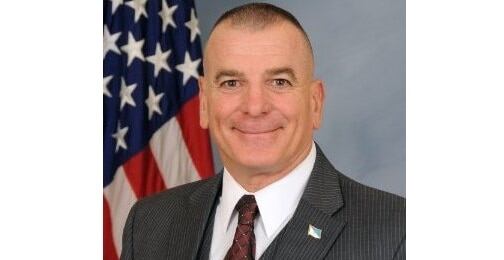America’s initial entry into World War I, which came three years after the fighting began, was more promise than power. Military experts on both sides of the Atlantic knew the U.S. had very few experienced combat troops at its disposal. The Army had been deployed to the Philippines to fight insurgents, but that experience was very different from this battlefield, where machine guns, artillery and chemical warfare were capable of killing 10,000 men in a day. The Marines, totaling less than 15,000 men, had seen combat action in China and Nicaragua, but even that experience did not seem enough to help them prepare for their future charge in France. Army Gen. John Pershing was appointed by President Woodrow Wilson to lead the American Expeditionary Force; Pershing, wanting to preserve the integrity of field formations, was opposed to integrating combat units.
America was now at war, and the Marines would be called upon. Congress approved 31,000 additional Marines, and to rapidly increase the Corps' fighting strength, Gen. George Barnett, commandant of the Marine Corps, successfully orchestrated a nationwide recruiting campaign to enlist and commission the best of America's volunteers.
It is then that the Marine Corps would undergo a radical transformation to do what was asked of them. Following boot camp and Officer Candidate School, Marines would take on more advanced garrison and field training both stateside and following their arrival in France.
However, the German spring offensive of 1918 altered training, causing an immediate movement of undertrained troops to the outskirts of Paris. Their mission: Stop the German army breach into the Chateau-Thierry, the front line at a place known as Belleau Wood. This would be among the first large-scale battles involving American troops, and the enemy knew it would set the tone for how the Americans would see themselves.
What happened at Belleau Wood was nothing short of ferocious — a close-range pitched battle, through dense woods, where troops of both sides were desperate to advance the line and succeed the mission. Machine-gun fire, poison gas, mortars, grenades and bayonet counterattacks all were inflicted with hellish delivery.
The Marines met every challenge, mounting major frontal assaults at the enemy six different times for nearly a month. Though the human cost was horrifying, with some 1,811 Americans killed and 7,966 wounded, their brave actions stopped the enemy advance.
American forces cleared the area of enemy soldiers, killing and wounding thousands while capturing more than 1,500 German troops.
In the eyes of the world, the Marines who fought at Belleau Wood proved that the " Teufel Hunden" (or "Devil Dogs") could battle against the most experienced combat troops in the world, and win. Pershing was so amazed by the tenacity of the American troops at Belleau Wood that it brought about one his famous quotes, "The deadliest weapon in the world is a United States Marine and his rifle."
The fortitude, discipline and courage instilled into the Marines of the 5th and 6th regiments can be greatly attributed to the noncommissioned officers. Heavily relied upon as the "backbone of the Marine Corps," the NCO's long-standing profession as small unit leaders stands firm today through every rank and file.

Retired Marine Sgt. Maj. Bryan Battaglia
While we may proudly sing of the halls of Montezuma and the shores of Tripoli, in many ways, the Marine Corps became the fighting force we know today amidst the grueling combat seen at Belleau Wood. The World War I Centennial Commission was created by Congress to preserve and promote such stories. The commission was also authorized to create the new National World War I Memorial in Washington to commemorate those who served during that global war, a tribute that is long overdue. Find out more at www.ww1cc.org/memorial.
Retired Sgt. Maj. Bryan B. Battaglia served 36 years in the Marine Corps, including more than four years as the senior enlisted adviser to the chairman of the Joint Chiefs of Staff (2011-2015).









